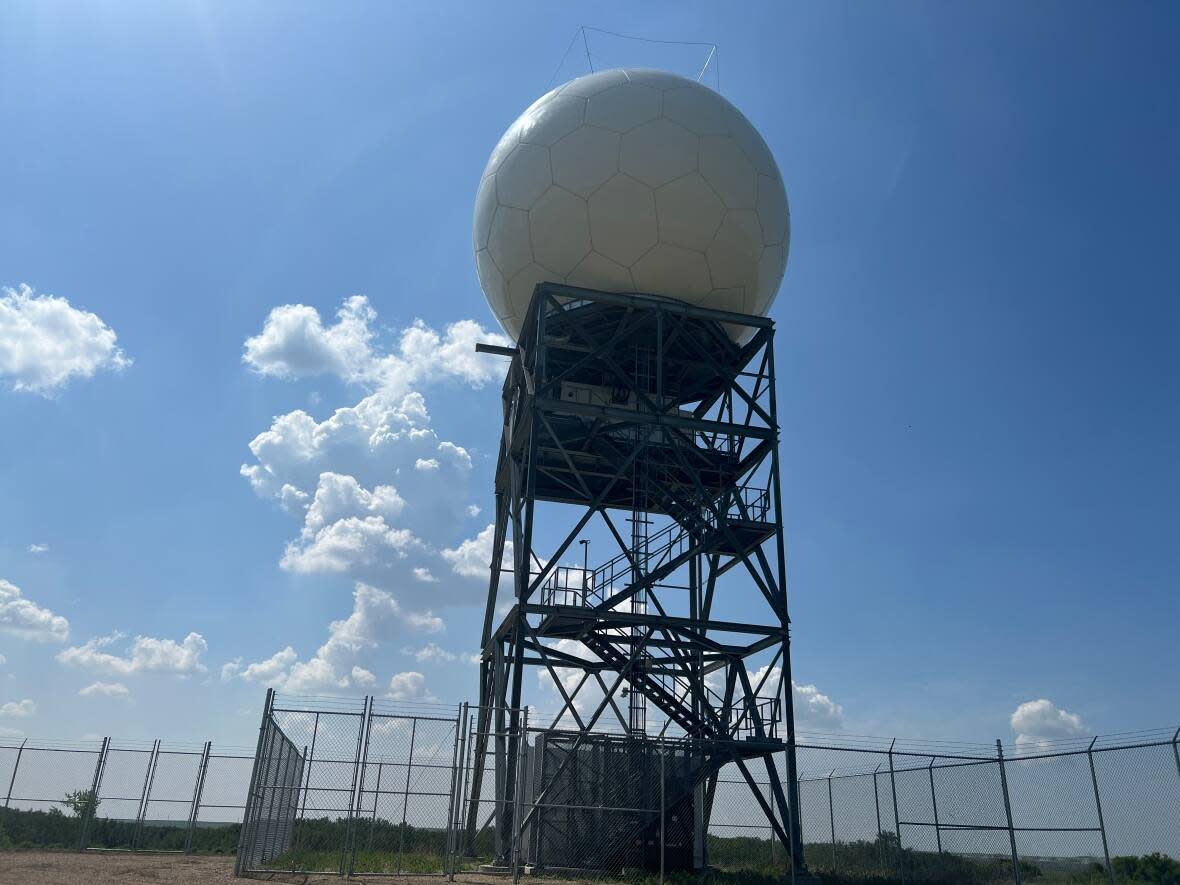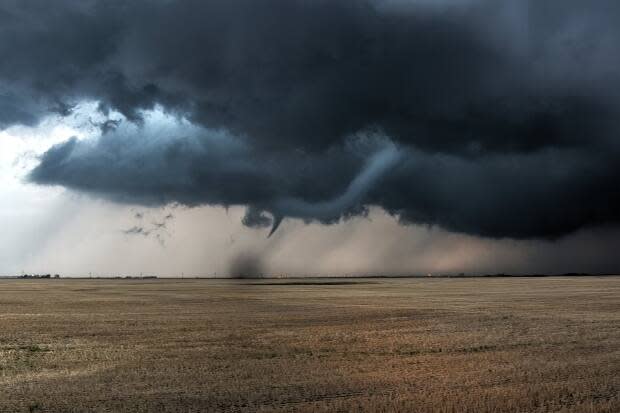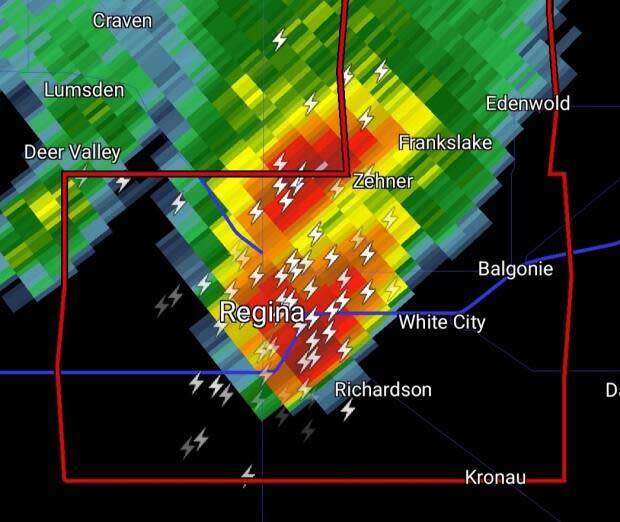Sask. weather radar site back online after outage during stormy week

Craig Boehm watched as a tornado touched down in a field south of Regina Saturday evening.
The Regina storm chaser's phone call to Environment and Climate Change Canada (ECCC) shortly after that prompted a tornado warning for the area.
ECCC usually relies on Doppler radar to issue tornado warnings, looking inside the storms to see if they're rotating and could produce a tornado.

But the agency's Bethune radar station — which covers most of southern Saskatchewan from its location about 60 kilometres northwest of Regina — had been down since May 24, making it challenging to diagnose the storm.
"Environment Canada wouldn't have had that same look [at the storm] as I did, because I was right there with the storm," said Boehm.
"If the radar would have been working ... they absolutely would have been able to see the rotation on that storm and probably would have warned it a little sooner than they did."

The EF-1 tornado first touched down around 8:55 p.m. CST Saturday. Boehm estimates it was on the ground for only a few minutes before lifting, but not before demolishing a metal storage building on a farm east of Rowatt.
Terri Lang, an ECCC meteorologist, said a broken part caused the radar breakdown. It's now back online after repair.
Lang said the outage was just as frustrating for meteorologists at ECCC. Although they can rely on other radars near Saskatoon and in Manitoba, Montana and North Dakota, the range of those radars don't cover the Regina area as well as Bethune's, and they can obscure a storm's features.
"Having the radar that close to the storm would have been quite useful," she said.
"A lot of people think that because the radar's out ... we're just sitting around twiddling our thumbs," said Lang. "That's simply not the case. The first people that notice the radars are out are us."
Lang said data shows the Bethune radar has been operational over 96 per cent of the time since it was upgraded in September 2019.
The radar was previously out for a short time in February due to a part that needed replacement, and during a power outage in January.
"That thing runs 24 hours a day, seven days a week, 365 days a year," said Lang. "For it to not break more than it does is pretty amazing, especially given our climate."

Boehm feels bad for the meteorologists at ECCC, but says things could have been worse.
"Regina got lucky, and Environment Canada ... got a little bit lucky with the fact that it didn't hit the city," said Boehm. "An unwarned tornado going into a heavily populated area can be a little bit of egg on the face sometimes, I think."
Both ECCC and Boehm were able to use other weather products — like satellite imagery and lightning maps — to follow the storm, but no nearby radar made things challenging.
"We're not completely without radar, but we are completely without the full tools of the radar," said Boehm.


